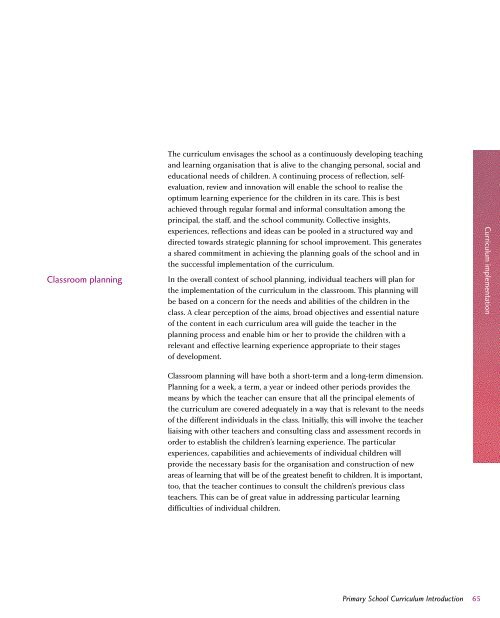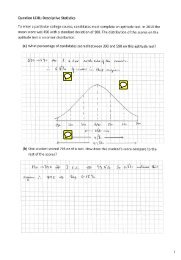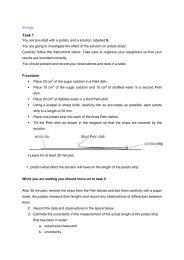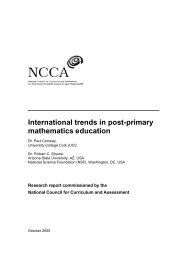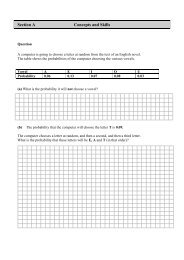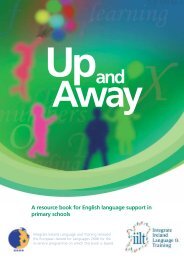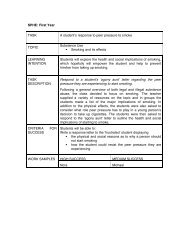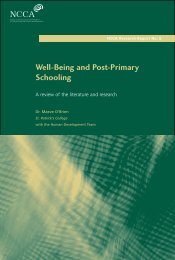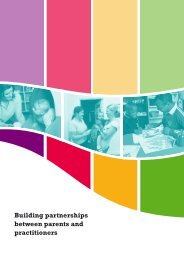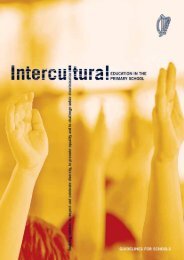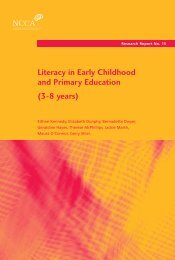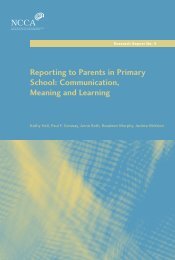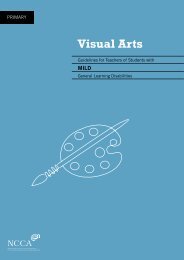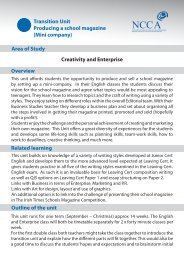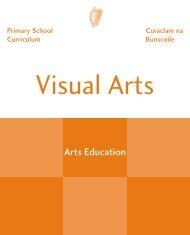Primary School Curriculum Curaclam na Bunscoile - NCCA
Primary School Curriculum Curaclam na Bunscoile - NCCA
Primary School Curriculum Curaclam na Bunscoile - NCCA
Create successful ePaper yourself
Turn your PDF publications into a flip-book with our unique Google optimized e-Paper software.
Classroom planning<br />
The curriculum envisages the school as a continuously developing teaching<br />
and learning organisation that is alive to the changing perso<strong>na</strong>l, social and<br />
educatio<strong>na</strong>l needs of children. A continuing process of reflection, selfevaluation,<br />
review and innovation will e<strong>na</strong>ble the school to realise the<br />
optimum learning experience for the children in its care. This is best<br />
achieved through regular formal and informal consultation among the<br />
principal, the staff, and the school community. Collective insights,<br />
experiences, reflections and ideas can be pooled in a structured way and<br />
directed towards strategic planning for school improvement. This generates<br />
a shared commitment in achieving the planning goals of the school and in<br />
the successful implementation of the curriculum.<br />
In the overall context of school planning, individual teachers will plan for<br />
the implementation of the curriculum in the classroom. This planning will<br />
be based on a concern for the needs and abilities of the children in the<br />
class. A clear perception of the aims, broad objectives and essential <strong>na</strong>ture<br />
of the content in each curriculum area will guide the teacher in the<br />
planning process and e<strong>na</strong>ble him or her to provide the children with a<br />
relevant and effective learning experience appropriate to their stages<br />
of development.<br />
Classroom planning will have both a short-term and a long-term dimension.<br />
Planning for a week, a term, a year or indeed other periods provides the<br />
means by which the teacher can ensure that all the principal elements of<br />
the curriculum are covered adequately in a way that is relevant to the needs<br />
of the different individuals in the class. Initially, this will involve the teacher<br />
liaising with other teachers and consulting class and assessment records in<br />
order to establish the children’s learning experience. The particular<br />
experiences, capabilities and achievements of individual children will<br />
provide the necessary basis for the organisation and construction of new<br />
areas of learning that will be of the greatest benefit to children. It is important,<br />
too, that the teacher continues to consult the children’s previous class<br />
teachers. This can be of great value in addressing particular learning<br />
difficulties of individual children.<br />
<strong>Primary</strong> <strong>School</strong> <strong>Curriculum</strong> Introduction<br />
65<br />
<strong>Curriculum</strong> implementation


